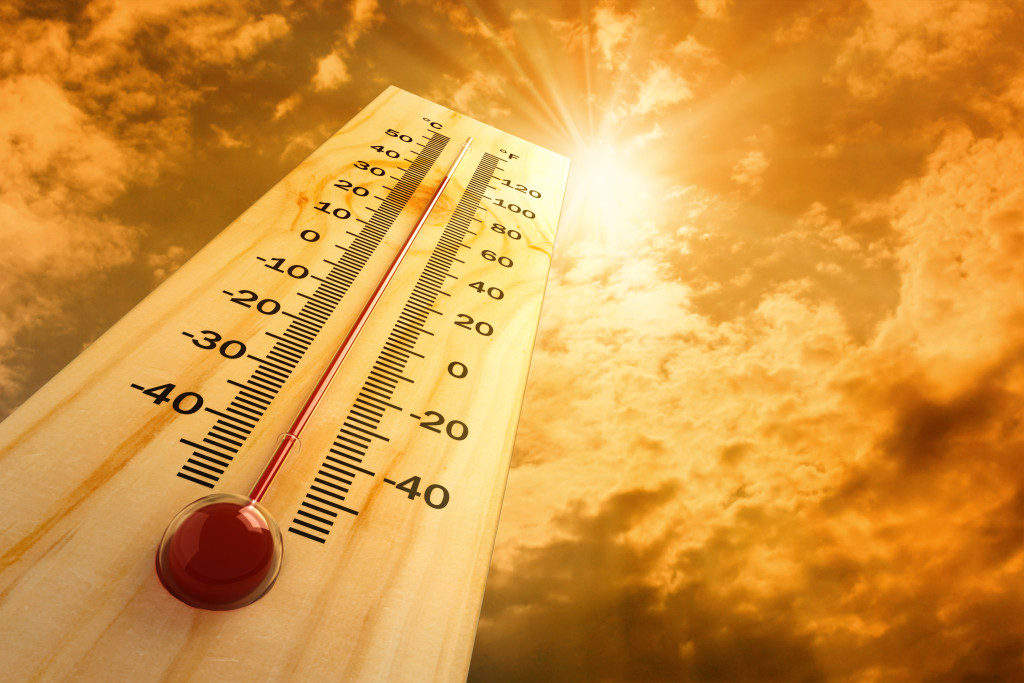Excessive Heat Watch for Meigs County and Surrounding Areas


Excessive Heat Watch for Meigs County and Surrounding Areas
POMEROY, Ohio – The National Weather Service in Charleston has issued an Excessive Heat Watch, which is in effect from Friday afternoon through Saturday evening. Heat Index values will be near or above 105 degrees due to temperatures in the mid 90s, and dewpoints in the mid 70s.
Temperatures will especially be worse Friday afternoon into early evening, and again Saturday afternoon into early evening. Such temperatures in combination with the high dew point make the possibility of heat stroke, heat exhaustion and other heat related illnesses possible, especially if you spend a significant amount of time outdoors, or are involved in any strenuous outdoor activity. People are being urged to contact their local Air Conditioning Repair company to check their cooling system is working well before these temperatures potentially claim lives.
Precautions and Preparedness
An Excessive Heat Watch means that a prolonged period of hot temperatures is expected. The combination of hot temperatures and high humidity will combine to create a dangerous situation in which heat illnesses are possible.
Be A Good Neighbor
- Family, friends and neighbors are urged to periodically check on the elderly and those with chronic medical conditions since they are among those at highest risk for heat-related illnesses.
- Encourage them to stay in air-conditioned environments as much as possible, and to look for an air- conditioned shelter if necessary.
- Recommend that they take cool showers or baths to cool down.
- Tell them to seek medical care immediately if they have symptoms of heat-related illness like muscle cramps, headaches, nausea or vomiting.
Drink Cool Fluids
- Help your body sweat and cool down by staying well hydrated with water. Don’t wait until you are thirsty before you start drinking water.
- Adults should drink eight 8-ounce glasses of water each day. Monitor your body – you may need to drink more on hot and humid days.
- Drink from two to four cups of water every hour while working or exercising outside.
- Avoid fluids that contain alcohol or caffeine, because they can add to dehydration and increase the effects of heat illness.
Monitor or Limit Outdoor Activities
- Plan outdoor activities for the early morning or evening when the sun is less direct.
- Wear loose-fitting, light-colored clothing.
- A wide-brimmed hat protects against sunburn and helps keep the body cooler.
- Use a broad-spectrum sunscreen that protects against UV-A and UV-B rays and has a sun protection factor (SPF) of at least 15.
- Move to the shade or into an air-conditioned building at the first signs of heat illness.
- Very young children may become preoccupied with outdoor play and not realize that they are getting overheated. Adults should require frequent breaks and bring them indoors for a cool drink.
- Children or youths involved in team sports should be closely monitored for signs of heat stress. Consideration should be given to shifting practices and games to cooler times of the day.
Know the Signs of Heat Stroke
- Heat stroke is a potentially life-threatening condition, characterized by a body temperature of 103 degrees or higher; red, hot and dry skin with no sweating; rapid pulse; headache; dizziness; nausea; confusion; unconsciousness; and gray skin color.
- People experiencing heat stroke need immediate medical assistance – call 911.
- Before help arrives, begin cooling the victim by any means possible, such as spray from a garden hose or by placing the person in a cool tub of water.
Don’t Forget Your Pets
- Animals kept outdoors should have plenty of fresh water and a covered area to get out of the sun and cool down.
- Never leave pets in vehicles. Even if the windows are cracked open, interior temperatures can rise almost 20 degrees within the first 10 minutes.






